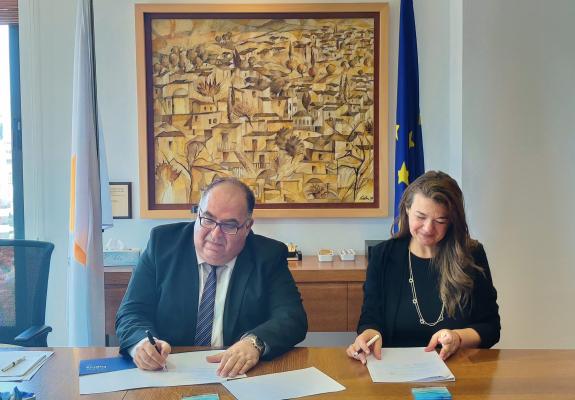Ministry of Interior Resolves 50% of Trapped Buyer Cases, 5,417 Still Pending
Despite Progress in Resolving Property Title Deed Issues for Half of the Affected Buyers, Thousands of Cases Remain Unresolved, Leaving Homeowners in Uncertainty.
The solutions proposed by the ad hoc Committee, established to explore options for trapped property buyers, were presented today to the Parliamentary Legal Affairs Committee by the Minister of Interior, Constantinos Ioannou, noting that solutions have been identified that can be applied to about 50% of the cases.
Specifically, the Minister mentioned that out of the total 9,497 applications from trapped buyers, 5,417 do not have a title deed and must remain pending until it is determined whether a title deed can be issued for these units. Of the remaining 4,080 applications, about 2,500, which do not have encumbrances after the sale contract, will be reviewed, and the process for issuing a title deed will proceed. He explained that the rest, which had encumbrances before the sale contract, will be reviewed if consent is obtained from those responsible for the encumbrances.
The Minister stated that the solution is legally and constitutionally sound, according to the Legal Service, and assured that efforts will continue with the ad hoc Committee to find a solution. Additionally, after an exchange of views during the meeting, it was deemed appropriate that when the Committee meets again, the banks should also be invited to participate. It is noted that banks have agreed to suspend foreclosure procedures for properties of trapped buyers until the first of the new year.
The Legal Service presented an alternative solution to the Committee, stating it is the safest process. Specifically, they referred to the process of specific performance, which can be pursued through the courts, as explained by a Legal Service officer. They noted that this process could be expedited if a regulatory framework were established to prioritize the adjudication of these cases, as it is currently not chosen due to its lengthy nature.
The Chairman of the Committee and MP from DISY, Nikos Tornaritis, pointed out that if this method were chosen for nearly 10,000 applications, decisions would be expected in about 20 years, a claim the Legal Service disagreed with, stating that there would be instructions from the Supreme Court for expedited adjudication if this solution is selected. AKEL MP Andreas Pasiourtides said that such a solution could only be applied if the filing of a specific performance application would result in the freezing of the foreclosure process. The Legal Service noted that this would need to be examined legislatively.

An official from the Ministry of Finance, who participated in the meeting, pointed out that any solution involving the foreclosure framework would need further discussion with the Finance Committee, and the pros and cons of potentially weakening the foreclosure framework would need to be weighed.
Objections to the specific performance process proposed by the Legal Service were raised by Haris Paraskevas, President of the First Home Protection Association and lawyer. He stressed that the issue should be addressed practically and not legally, highlighting the helpful and practical stance of KEDIPES, which decided to freeze foreclosures until a solution is found. He added that courts should be avoided at all costs and that banks are the key players, so they should participate in out-of-court settlements.
The Financial Ombudsman, Valentina Georgiadou, noted during the meeting that any out-of-court dispute resolution should be done within the correct framework. She referred to cases where decisions had been issued by her Office, resulting in the release of some trapped buyers. She added that any complaints submitted to the Ombudsman’s Office would be reviewed but emphasized that banks and credit acquisition companies must also agree.
Jenny Papacharalambous, Director of the Association for the Protection of Bank Borrowers, after the meeting:
Banks must also understand that they have responsibilities, as do credit acquisition companies. That is why a delegation from the banks and credit acquisition companies will participate in the next meeting of the ad hoc Committee.
She added that during the discussions on the out-of-court settlement of trapped buyers' cases, they did not encounter negative feedback from banks or credit acquisition companies regarding the suspension of foreclosure procedures. However, she noted that state services must also act swiftly to resolve the cases of trapped buyers, so there are no further obstacles in the effort to negotiate with banks.
Regarding the Legal Service’s proposal, Ms. Papacharalambous expressed a negative stance, stating that from the information the Association has, this process does not work and cannot work due to a lack of judges.
Nevertheless, Stelios Stylianides, representing the Trapped Buyers Initiative Group, appealed for the involved services to cooperate to avoid victimizing the buyers. He noted that they expect banks to show the necessary understanding and cooperation, citing KEDIPES' stance as a positive example that should serve as a guide.
He emphasized the need for legislative regulation for all trapped buyers, which would be constitutionally compliant. He also proposed expediting the process for buyers with encumbrances after the sale, stating that this is a straightforward case that can proceed without legislative changes.






